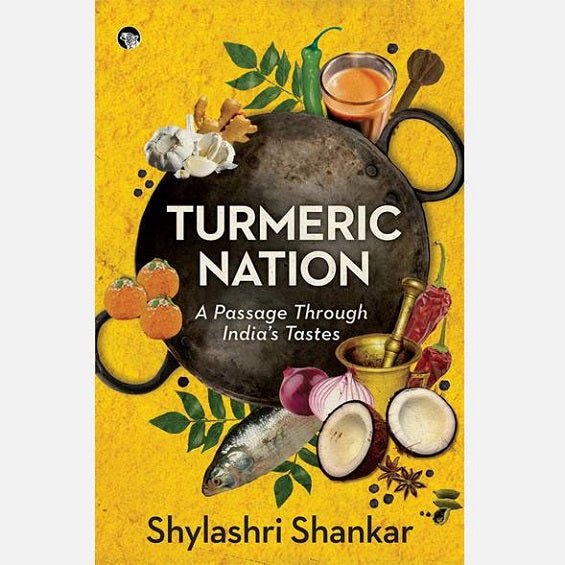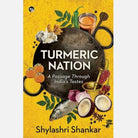Turmeric Nation: A Passage Through India's Tastes
Filled with a lot of facts and some personal anecdotes, the book is a fascinating look at the significance of food. The author is an academic and her erudition is apparent in her writing. It's a book one feels they learn a lot from. It's good read for those interested in history and humanities as well as those interested in food.
What exactly is 'Indian' food? Can it be classified by region, or religion, or ritual? What are the culinary commonalities across the Indian subcontinent? Do we Indians have a sense of collective self when it comes to cuisine? Or is the pluralism in our food habits and choices the only identity we have ever needed? Turmeric Nation is an ambitious and insightful project which answers these questions, and then quite a few more. Through a series of fascinating essays—delving into geography, history, myth, sociology, film, literature and personal experience—Shylashri Shankar traces the myriad patterns that have formed Indian food cultures, taste preferences and cooking traditions. From Dalit 'haldiya Dal' to the last meal of the Buddha; from aphrodisiacs listed in the Kamasutra to sacred foods offered to gods and prophets; from the use of food as a means of state control in contemporary India to the role of lemonade in stoking rebellion in 19th-century Bengal; from the connection between death and feasting and between fasting and pleasure, this book offers a layered and revealing portrait of India, as a society and a nation, through its enduring relationship with food.
About the Author
Shylashri Shankar is a senior fellow at the Centre for Policy Research. She is the author of Scaling Justice: India’s Supreme Court, Anti-Terror Laws and Social Rights and co-author (with Raghav Gaiha) of Battling Corruption: Has NREGA Reached India’s Rural Poor? She has also written on judicial activism in India and Sri Lanka, transformative courts in the Global South, cross-judicial engagement on secularism in India, Sri Lanka and South Africa, ethnic conflict in South Asia and the Middle East, and on the politics and impact of anti-poverty programmes.

